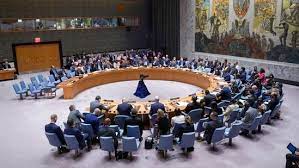Checks without balance: On China’s lock to prevent listing of terrorists
India must look at all its options with China to ensure listing of terrorists
China’s decision to block two proposals by India and the United States to list Lashkar-e-Taiba (LeT) commanders on the United Nations Security Council’s 1267 terror list is part of a well-worn pattern now. Since June, New Delhi and Washington have made five such proposals, with China placing a hold on each. This includes Jaish-e-Mohammad chief Masood Azhar’s brother Rauf Asghar and LeT leaders Abdur Rahman Makki (Hafiz Saeed’s brother-in-law), 26/11 handler Sajid Mir and the latest listing requests for Talha Saeed (Hafiz Saeed’s son) and Shahid Mehmood, who is charged with recruitment and collection of funds for the terror group. Each of these men has been listed as designated terrorists in India’s Unlawful Activities (Prevention) Act terror list as well as on the Federal Bureau of Investigation or U.S. Treasury lists. Each of them has a record of charges over the past two decades of involvement in the attacks by the LeT and JeM, organisations that are banned by the UN, and responsible for targeted strikes in India — from the IC-814 hijack, Parliament attack and Mumbai 26/11, to Pathankot, Uri and Pulwama. Even so, China’s response to the requests has been consistently recalcitrant, placing hold upon hold on the proposals made, regardless of the figure it cuts in the global counter-terrorism space, using what New Delhi has forcefully criticised as a “political bias ” towards Pakistan to stymie the process.
Given the situation, India has three clear choices: the Government can abandon the effort until China can be persuaded to change its stance, or it can continue to bring terror listing proposals to the UN knowing they will be blocked by China, but showing that China is indeed misusing its power as a permanent member of the Security Council. Neither route will, however, ensure India’s goal of listing the remaining leadership of the terror groups. A third option is to open a diplomatic channel with China that focuses on the issue of global cooperation on terrorism, separate from other fractious bilateral issues, and to induce Beijing to reconsider its untenable position. While the last option seems the most difficult, if not impossible, it must be remembered that China was persuaded to “grey list” Pakistan at the Financial Action Task Force (FATF) from 2012-2015, and from 2018 to the present, and remove its hold and allow the terror listing of Masood Azhar at the UNSC in 2019, after blocking such attempts since 2009. As Pakistan moves off the FATF grey list — as it is expected to on Friday — it is time for India to consider all its options with China to ensure justice for all the victims of the cross-border terrorism that has exacted a deep and lasting toll on the country.
